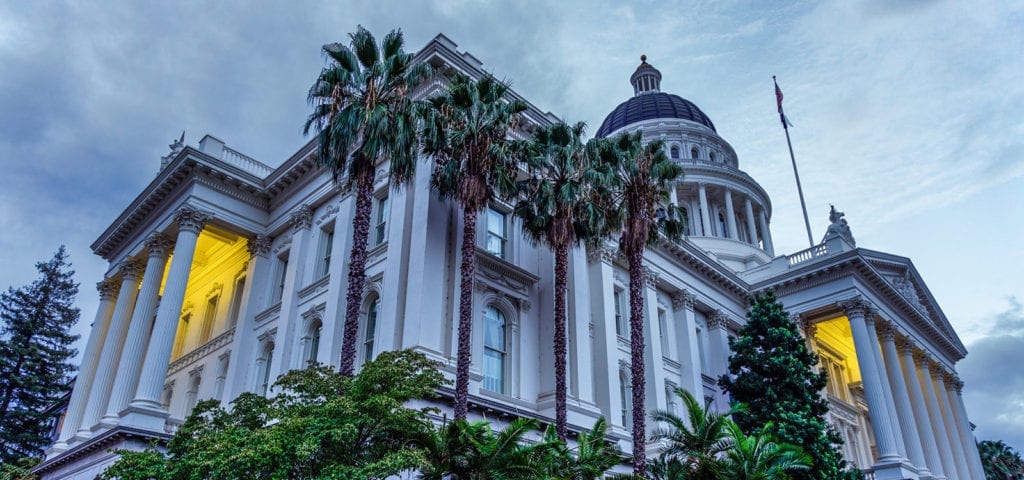Editor’s update: A previous version of this article indicated incorrectly that the delivery-focused bill outlined below had already been rejected by lawmakers. At the time of this update (12:05 pm PST), the bill is currently on the California Senate floor.
Several cannabis-related bills have failed in California just days before the deadline for them to pass the chamber in which they were introduced, East Bay Express reports. One would have cut the excise tax on retail cannabis sales and suspended the cultivation tax; another would have given medical cannabis patients the same rights as those prescribed opioids.
A third bill, currently on the Senate floor, would prohibit municipalities from banning delivery services.
The tax-reduction bill would have reduced retail excise rates from 15 percent to 11 percent and suspended the cultivation tax until June 1, 2021. The excise tax, paired with state sales taxes and local taxes, push total taxes in some localities to as much as 40 percent at the point-of-sale. Amy Jenkins, a lobbyist for the California Cannabis Industry Association, said “killing that bill is a big win for the black market.”
The medical cannabis patients’ rights bill would have allowed the population the same “reasonable accommodation” as other prescription medication takers under the Fair Employment and Housing Act. The measure was opposed by the Chamber of Commerce and Department of Justice.
The bill to prevent towns and cities from banning cannabis deliveries is opposed by two powerful lobbies. The League of California Cities and California State Association of Counties oppose the measure because it would prevent municipalities from self-direction. More than two-thirds of California counties have banned cannabis commerce, including deliveries.
Several other bills can still be considered by the Legislature, including measures allowing cannabis events at any venue in any city that allows them; cannabis farmers markets; the creation of an equity program; an expungement bill; allowing children to take their cannabis medications at school; the creation of a state-run cannabis bank; and allowing laboratories to test home-grown products.
